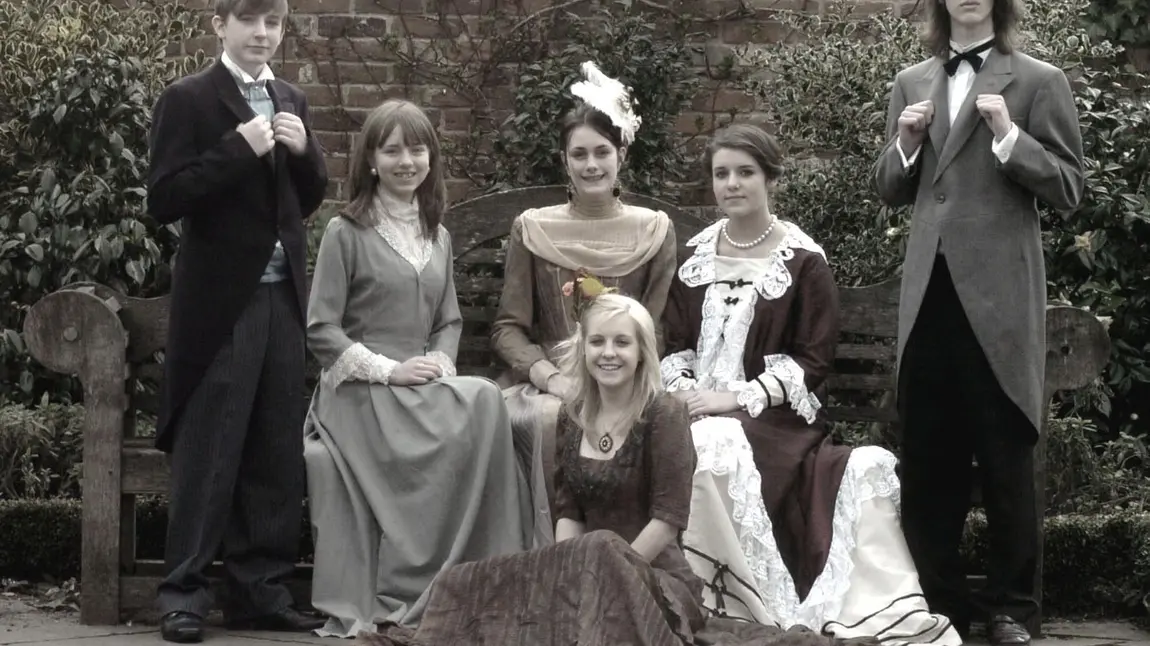From Patch to Plate takes Wolverhampton back to its roots

From Patch to Plate will follow 200 years of the area’s history and explore how its development from open land and farms to houses and roads has impacted the local community’s relationship with food and its production.
The project will focus on two key sites with a rich food production heritage – Bantock House and Museum and Jeffcock Road Allotments.
Discussions about obesity and where food comes from sparked the idea for the project, which will be run in partnership with The Museums, Galleries & Archives of Wolverhampton (WAVE). Jane Ward from Central Youth Theatre explained: “Our ideas came about when we heard that the future of Bantock House Museum was uncertain. Not many people realise that the house was originally a farm and the area around it was called Pennfields as it was quite literally fields.
“Wolverhampton’s industrial heritage is frequently explored and celebrated but the transformation of how it turned from a small rural market town into a large town of factories and workers houses from the industrial revolution onwards is rarely thrown into the spotlight! Historical changes and recent modern food production methods have created a real disconnect in the lives of young people in terms of where there food comes from and how it is produced. Through focusing on the history of a local area and also the allotment movement we wanted to change this.”
Young participants will gain archival and oral history skills as they explore the history of Bantock House and Museum and of the Jeffcock Road Allotment Association, which has worked the same area of land since 1918. The Association holds nearly a century’s worth of food production information and, as its centenary anniversary approaches, this will be the first time its history has been documented.
Four seasonal events – Spring, Summer, Harvest and Winter – will take place next year in Bantock Park. Heritage crops, live performances and short films will showcase the project’s progress and local people will have the chance to add their own memories to the growing collection.
An outreach programme will see the Central Youth Theatre visit five local schools, inviting children to delve into their local history and gain a better understanding of their changing landscape.
Reyahn King, Head of Heritage Lottery Fund West Midlands, said: “Thanks to money raised by National Lottery players, we’ve provided over £3m to more than 128 Young Roots projects in the West Midlands. We’re delighted to include in that the Central Youth Theatre, which has set out to creatively explore a significant chapter of Wolverhampton’s history and its enduring legacy in modern life.”
Wolverhampton’s food heritage story will be documented at Wolverhampton City Archives and on dedicated project website pages.
Notes to editors
About Central Youth Theatre
Central Youth Theatre has been operating in Wolverhampton for over 30 years providing performing arts skills for young people aged between eight and 25. The Youth Theatre has recently completed another Heritage Lottery Fund funded project when it recently produced “After Dawn” a short film based on the stories of local soldiers who were shot at dawn for perceived cowardice during the First World War. The film was shown at the Black Country Living Museum and Lighthouse Cinema and is now available to schools along with a supporting exhibition and drama education programme. Besides a strong track record in heritage work the youth theatre also undertake many international projects and during 2015 will be performing in Italy and Czech Republic at International Youth Theatre Festivals.
About Museums, Galleries & Archives of Wolverhampton (WAVE)
WAVE directly manages five landmark buildings of historic interest in Wolverhampton. Wolverhampton Art Gallery, Wolverhampton Archives, Bantock House Museum, Bilston Craft Gallery and Makers Dozen. They aim to collect and preserve material relating to the cultural heritage of Wolverhampton; Harness the potential of their collections, buildings and expertise to stimulate critical thought and debate; promote excellent visitor experiences; support the creative industries in the city and place the arts and heritage at the heart of civic life.
About Bantock House and Museum
Bantock House Museum, set in a 43 acre Park to the West of the city is a restored Georgian farmhouse with Victorian and Edwardian additions. The house was the home of canal and railway agent Thomas Bantock from the 1860s and was further improved by his son Albert Baldwin Bantock in the late 19th century. On Baldwin’s death in 1938 it was bequeathed to Wolverhampton Council. The museum now tells the story of the Bantock family and other local Victorians who were influential in Wolverhampton’s growth and development. The museum also has one of the country’s finest collections of Japanned ware, an important industry in Wolverhampton in the 18th and 19th centuries which is displayed together with exquisite examples of locally made enamels and steel jewellery. The gardens around the house have been restored to Baldwin Bantock’s original designs, and include a sunken Dutch Garden, a Rose Garden and Woodland Pond Garden.
Further information
For more information, contact
HLF press office: Rebecca Lamm on 020 7591 6245, email: Rebecca.Lamm@hlf.org.uk.
Central Youth Theatre: Jane Ward on 07941 922 580, email: jane@centralyouththeatre.org.